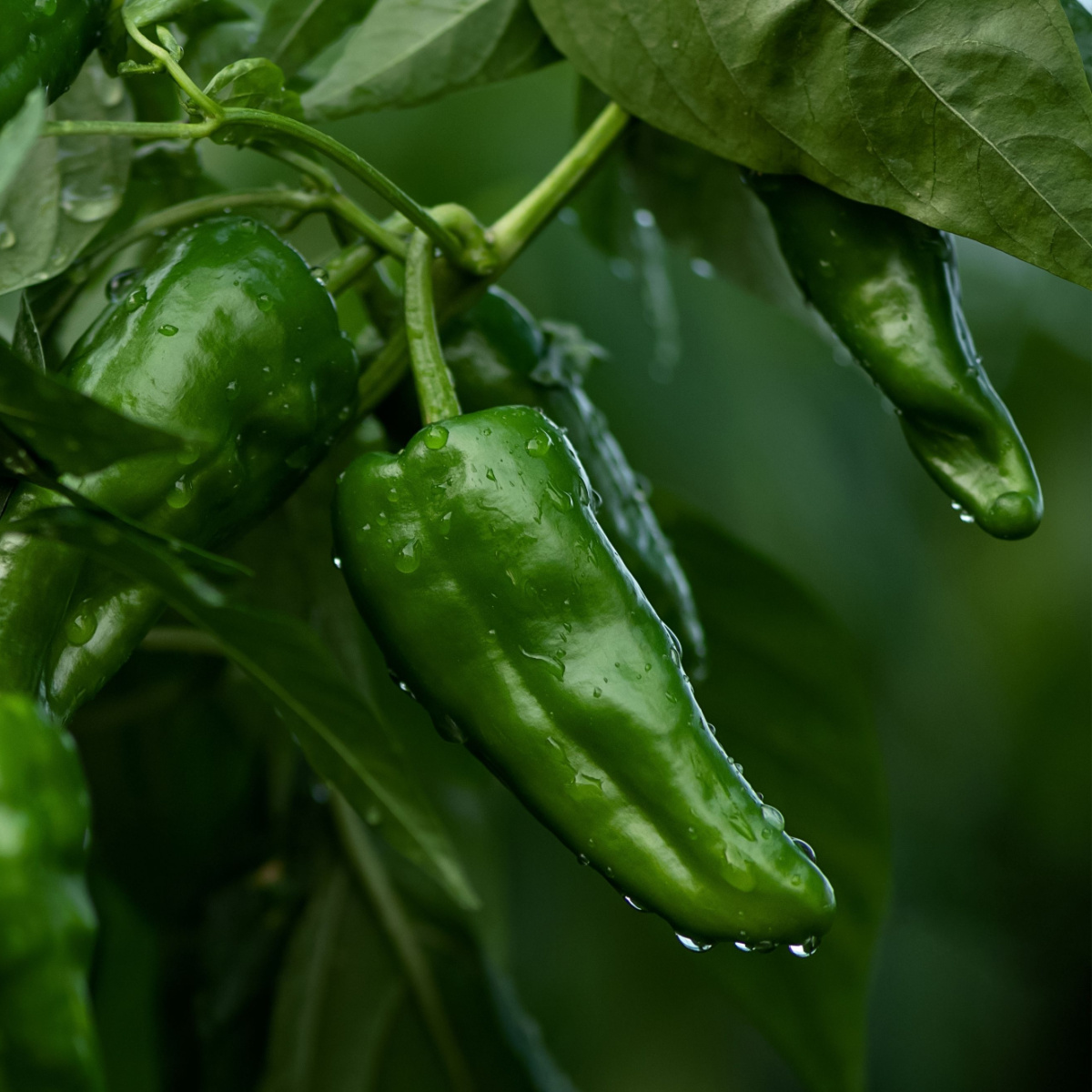Uncover the Best Fertilizers for Peppers: Essential Nutrients for Growing Plants
Uncover the Best Fertilizers for Peppers: Essential Nutrients for Growing Plants
Blog Article
Organic Vs. Synthetic Fertilizers: Which Is Best for Nurturing Healthy Pepper Plants?
In the world of supporting healthy pepper plants, the option between organic and artificial plant foods stands as a pivotal choice with far-reaching ramifications. While both options aim to supply essential nutrients to sustain plant growth, the subtleties of their impact on the soil, plant health and wellness, and the atmosphere spark an argument that echoes throughout the horticulture area. Recognizing the distinctive advantages and possible risks of each fertilizer type is important for pepper farmers looking for to maximize their returns while preserving a sustainable and eco-conscious method.
Benefits of Organic Fertilizers
Organic fertilizers use a sustainable and environmentally-friendly method to beneficial pepper plants, giving crucial nutrients without using synthetic chemicals. These all-natural plant foods are originated from natural resources such as compost, manure, bone dish, and algae, advertising dirt wellness and biodiversity. Unlike synthetic plant foods, organic choices launch nutrients slowly, making certain a constant and balanced supply for pepper plants to flourish.
One considerable benefit of organic fertilizers is their capability to enhance dirt structure and water retention. By enhancing soil wellness, organic plant foods advertise useful microbial activity, which assists in nutrient uptake by pepper plants. In addition, natural plant foods lower the risk of chemical run-off, securing water resources from air pollution and protecting the atmosphere.
Furthermore, natural fertilizers add to long-lasting dirt fertility by promoting the growth of beneficial dirt organisms. These organisms help damage down organic issue, releasing nutrients in a kind that is easily accessible to pepper plants. best fertilizers for peppers. By fostering a healthy and balanced soil environment, natural fertilizers support lasting pepper growing practices that profit both plants and the setting
Drawbacks of Synthetic Fertilizers
Artificial plant foods, unlike their organic counterparts, posture numerous downsides when used to nourish pepper plants, affecting both plant health and ecological sustainability. One major drawback of artificial fertilizers is their propensity to leach nutrients from the soil rapidly. This rapid leaching can cause nutrient inequalities in the dirt, causing plants to experience from deficiencies or toxicities. In addition, artificial plant foods can hurt advantageous soil organisms, such as earthworms and beneficial bacteria, interfering with the dirt ecosystem's balance.
In addition, the overuse of artificial plant foods can add to water pollution. Excess fertilizers not soaked up by plants can get rid of into water bodies, bring about eutrophication, where algae flowers deplete oxygen levels in the water, hurting aquatic life. Artificial fertilizers are commonly derived from non-renewable resources, such as fossil fuels, contributing to carbon exhausts and ecological degradation during their production.
Nutrient Absorption Comparison
When contrasting natural and synthetic plant foods in terms of nutrient absorption, natural plant foods have the advantage of offering a much more well balanced and slow-release resource of nutrients. Organic plant foods consist of a variety of macro and micronutrients that are not just helpful for the plants but likewise advertise healthy and balanced dirt microbial task, which aids in nutrient uptake.
Moreover, organic fertilizers enhance dirt structure and water retention ability, permitting pepper plants to gain access to nutrients much more successfully. This better soil high quality promotes root advancement, enabling better nutrient absorption. Artificial fertilizers, although originally enhancing plant development click this because of their high nutrient concentrations, might prevent long-lasting nutrient absorption by derogatory soil health gradually.
Ecological Impact Considerations

On the other hand, synthetic plant foods, although commonly more concentrated and immediately readily available to plants, can have damaging effects on the environment if not used effectively (best fertilizers for peppers). Their manufacturing requires high power inputs, causing greenhouse gas exhausts and adding to environment change. In addition, the overflow of excess synthetic plant foods can contaminate water resources, leading to eutrophication and damaging aquatic communities.
Ideal Plant Food Practices for Peppers
When fertilizing pepper plants, enhancing nutrient uptake and lessening ecological effect are essential factors to consider. To achieve this, it is important to comply with finest fertilizer techniques customized to the particular requirements of pepper plants. One important practice is to execute a soil examination prior to using any type of plant foods. This examination click to read can figure out the pH level of the dirt and determine any type of nutrient shortages, guiding you in choosing one of the most appropriate fertilizer formulation.
Another crucial practice is to fertilize pepper plants at the right time. Typically, peppers take advantage of receiving plant food at growing and afterwards once again when they start to flower. Over-fertilizing can lead to nutrition inequalities and hurt the plants, so it is crucial to adhere to recommended application prices.
Furthermore, selecting a balanced fertilizer with an NPK ratio that fits pepper plants' requirements is fundamental. Organic fertilizers, such as garden compost or manure, can be excellent selections as they release nutrients slowly and enhance soil structure gradually. Artificial plant foods can provide a fast nutrient increase when needed. Inevitably, incorporating organic and synthetic fertilizers sensibly can aid support healthy and balanced pepper plants while lessening environmental impact.
Verdict

Organic plant foods offer an environmentally-friendly and lasting strategy to nourishing pepper plants, supplying essential nutrients without the use of artificial chemicals. Unlike artificial fertilizers, organic alternatives launch nutrients gradually, ensuring a constant and well balanced supply for pepper plants to grow.
Synthetic plant foods, in contrast to their natural equivalents, posture different downsides when made use of to nourish pepper plants, affecting both plant health and environmental sustainability. When comparing artificial and organic fertilizers in terms of nutrient absorption, natural fertilizers have the advantage of providing an extra balanced and slow-release source of nutrients.In addition, natural plant foods enhance dirt structure and water retention capacity, allowing pepper plants to access nutrients extra successfully.
Report this page